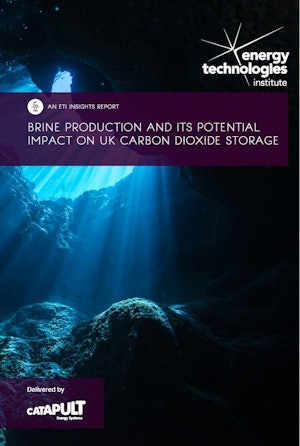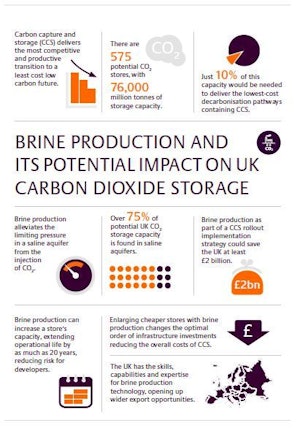Brine Production And Its Potential Impact on UK Carbon Dioxide Storage

Dennis Gammer
Strategy Manager

A range of evidence supports the role of carbon capture, usage and storage (CCUS) in delivering the most competitive and productive UK transition to a low carbon future. Numerous whole energy system analyses demonstrate the robustness of the future role of CCUS, even with a conservative view of future cost reduction; for example those produced by the ETI and quoted by the Committee on Climate Change (CCC). This is underpinned by the versatility of CCUS and its unique potential for industrial decarbonisation. Failure to develop the capacity to deploy CCUS at commercial scale by 2030 will significantly increase the costs and risks of delivering the emissions reductions required for the fifth carbon budget and beyond.
The key insights from our analysis are as follows:
Based on the analysis summarised in this report the savings to the UK from deploying brine production as part of a UK CCS rollout implementation strategy in line with that needed to deliver lowest-cost decarbonisation pathways would be at least £2 billion, but would most likely be more. This cost benefit is derived from a combination of:
- In-store cost reduction from economies of scale by enabling significantly increased storage capacity to reduce unit storage costs (in one example studied this was worth £1 billion over the life of the store - a 33% reduction); and
- Enhancing the capacity of cheaper stores, thereby obviating the need to appraise and develop more expensive stores (for the limited examples studied this was valued at another £1 billion).

Dennis Gammer
Strategy Manager
Dennis Gammer joined the ETI as Strategy Manager, Carbon Capture and Storage in 2010. He has 30 years’ experience in technology development and licensing and is a chartered chemical engineer